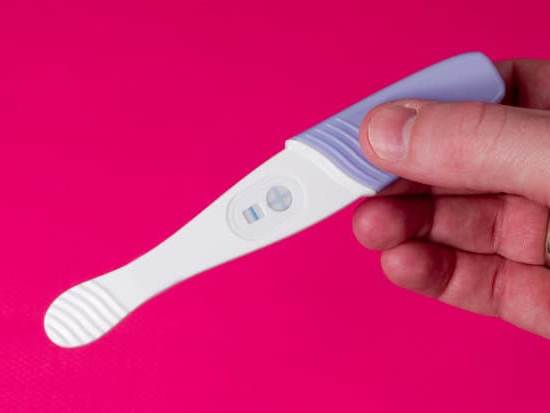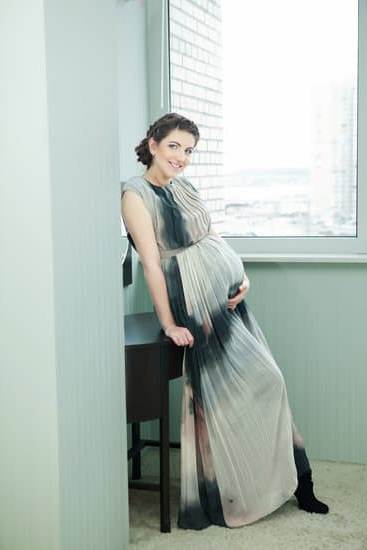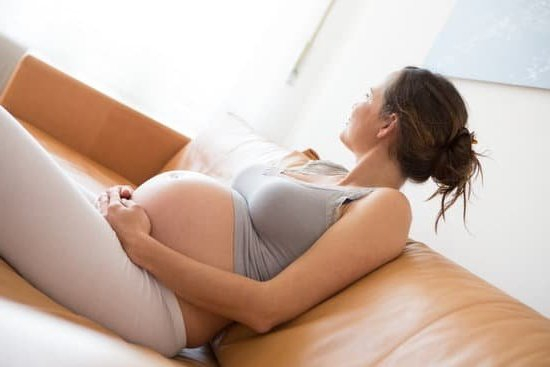Breast Pain During Pregnancy Third Trimester
Most pregnant women experience breast pain at some point during their pregnancy. The pain can range from mild to severe, and it can occur in one or both breasts. The cause of breast pain during pregnancy isn’t always clear, but it’s often related to the changes that occur in your breasts during pregnancy.
Hormonal changes
One of the most common causes of breast pain during pregnancy is hormonal changes. Your body goes through a lot of hormonal changes during pregnancy, and these changes can cause your breasts to become swollen and tender.
Increased blood flow
Another common cause of breast pain during pregnancy is increased blood flow. With more blood flowing to your breasts, they may become swollen and tender.
Stretching of the skin
As your breasts grow during pregnancy, they may stretch the skin and tissues. This can cause pain and tenderness.
Lactation
Some women experience breast pain during lactation, even if they’re not pregnant. This pain is often caused by the let-down reflex, which happens when the milk begins to flow from the breast.
Other causes
In addition to hormonal changes, increased blood flow, and stretching of the skin, there are a few other causes of breast pain during pregnancy. These can include:
-Infection
-Fibrocystic breasts
-Pregnancy-related mastitis
-Nerve compression
If you’re experiencing breast pain during pregnancy, it’s important to see your doctor to determine the cause. Treatment options vary depending on the cause, but may include over-the-counter pain medications, ice packs, or breast compression.
The Third Trimester Of Pregnancy
The third trimester of pregnancy is an exciting time, as the fetus is growing larger and becoming more active. However, it can also be a time of anxiety, as the mother begins to feel the baby move and wonders what labor will be like.
The third trimester begins at 28 weeks and lasts until delivery. During this time, the fetus will grow larger and the organs will continue to mature. The lungs, in particular, will continue to develop, and by the end of the third trimester the baby will be able to breathe on its own.
The mother’s body will also change during the third trimester. She may experience swelling in her feet and legs, and she may also have trouble sleeping. Braxton Hicks contractions may also start to occur, which are contractions that occur intermittently and are not painful.
In the final weeks of the third trimester, the mother will begin to experience more Braxton Hicks contractions, as well as a feeling of pressure in her pelvic area. The baby will also move into a head-down position in preparation for delivery.
The third trimester of pregnancy can be an exciting time, as the fetus grows larger and becomes more active. However, it can also be a time of anxiety, as the mother begins to feel the baby move and wonders what labor will be like.
The third trimester begins at 28 weeks and lasts until delivery. During this time, the fetus will grow larger and the organs will continue to mature. The lungs, in particular, will continue to develop, and by the end of the third trimester the baby will be able to breathe on its own.
The mother’s body will also change during the third trimester. She may experience swelling in her feet and legs, and she may also have trouble sleeping. Braxton Hicks contractions may also start to occur, which are contractions that occur intermittently and are not painful.
In the final weeks of the third trimester, the mother will begin to experience more Braxton Hicks contractions, as well as a feeling of pressure in her pelvic area. The baby will also move into a head-down position in preparation for delivery.
The third trimester of pregnancy can be an exciting time, as the fetus grows larger and becomes more active. However, it can also be a time of anxiety, as the mother begins to feel the baby move and wonders what labor will be like.
The third trimester begins at 28 weeks and lasts until delivery. During this time, the fetus will grow larger and the organs will continue to mature. The lungs, in particular, will continue to develop, and by the end of the third trimester the baby will be able to breathe on its own.
The mother’s body will also change during the third trimester. She may experience swelling in her feet and legs, and she may also have trouble sleeping. Braxton Hicks contractions may also start to occur, which are contractions that occur intermittently and are not painful.
In the final weeks of the third trimester, the mother will begin to experience more Braxton Hicks contractions, as well as a feeling of pressure in her pelvic area. The baby will also move into a head-down position in preparation for delivery.
Cramps In Pregnancy Third Trimester
Cramps are common in the third trimester of pregnancy. They can be caused by the baby pressing on the mother’s bladder or intestines, or by the mother’s uterus growing larger.
Cramps are usually mild and go away on their own. However, if they are severe or accompanied by bleeding, contact your health care provider.
Three Trimesters Of Pregnancy
There are three trimesters of pregnancy-the first, second, and third. The first trimester is from conception to 12 weeks, the second trimester is from 13 to 27 weeks, and the third trimester is from 28 to 40 weeks.
During the first trimester, the baby’s major organs are forming. The baby’s heart starts beating at around six weeks, and the baby can start to move around at 10 weeks. The baby’s gender can be determined at 12 weeks.
During the second trimester, the baby’s body starts to fill out, and the baby can start to hear and see. The baby’s lungs are also developing, and the baby can start to breathe on its own at around 24 weeks.
During the third trimester, the baby’s brain is developing rapidly. The baby can start to feel pain and hear voices. The baby is also growing hair and fingernails. The baby is ready to be born at around 40 weeks.
Fatigue Second Trimester Pregnancy
Fatigue is a common complaint during the second trimester of pregnancy. Most women feel more energetic in the first trimester, but as the baby grows, the body has to work harder. Pregnant women need about 300 extra calories a day, and many women find they are not very hungry in the second trimester. This can lead to a decrease in energy levels.
In addition, the body is producing more progesterone, which can make women feel sleepy. Progesterone is also responsible for the “morning sickness” that some women experience in the early months of pregnancy.
There are a few things you can do to combat fatigue during the second trimester:
-Eat regular, balanced meals and snacks.
-Get plenty of rest.
-Exercise regularly.
-Avoid caffeine and alcohol.
-Take prenatal vitamins.
-See your doctor if you are feeling especially tired.

Welcome to my fertility blog. This is a space where I will be sharing my experiences as I navigate through the world of fertility treatments, as well as provide information and resources about fertility and pregnancy.





